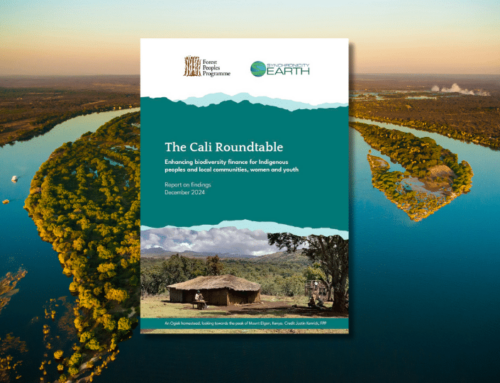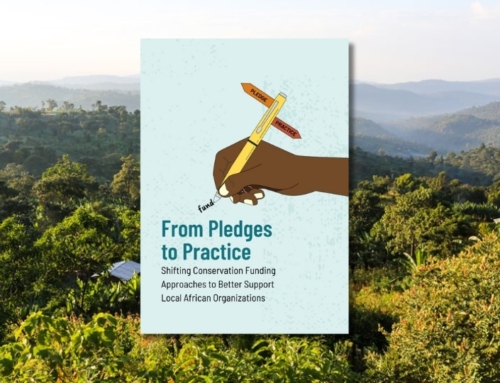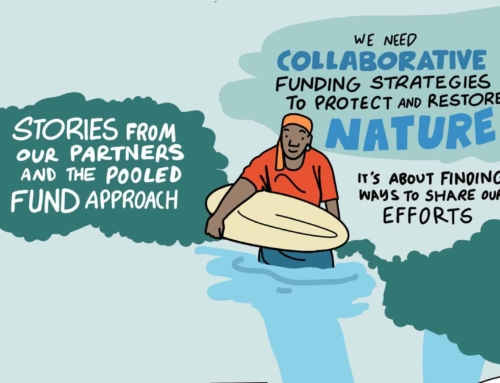“Let us not talk falsely now, for the hour is getting late…” Bob Dylan
Environmental philanthropy is virtually nonexistent. Since we were founded seven years ago, Synchronicity Earth has devoted significant time and resource into understanding why this is so. In fact, we were created as a response to the sad truth that there was negligible financial support available for conservation. Sadly, the numbers haven’t changed very much; we still only allocate 4-6% of Western philanthropy to the environment and 2%, globally;
Given all that we know – and especially – that we humans simply cannot exist on earth without a healthy, vibrant, robust and diverse natural world – I am as baffled as I was in 2006 when we first embarked upon our greater mission ‘to do something’.
That said, I do know a lot more now, and have developed some insights of my own:
– Philanthropy is linguistically founded in the notion of love, and of uplifting others – especially humans. Historically – especially in the last century – philanthropy has been the bedrock for applied altruism. Sadly, the environmental problems we face are fundamentally correlated to unprecedented Growth, and traditional philanthropy is not only ill-equipped to tackle it, but the issues have far surpassed its remit.
– In the Age of the 6th Extinction, I feel there is an inherent moral responsibility for environmental philanthropists and institutions to share their visions to try to encourage others to act. We need to call into question our Western ideals, systems and habits that have provided the root cause of global environmental degradation in order to begin to undo the fix we’ve created. Not only can we ramp up our support for groups working directly with people and communities who live with environmental degradation every day, but we can learn from their practices.
– Wealthy individuals – all in – give very little to the environment. Case in point: Coutts Private Bank just published the 2015 ‘Million Dollar Donors Report’ tracking 1,831 donations of $1 million US or more, totaling $24.5bn across 8 regions – UK, USA, Russia, Middle East, China, Hong Kong and South Africa in 2014. A mere 1.2% was distinctly allocated to the environment.
Why? Why does the environment – our natural world, which provides us with everything – rank so low on our philanthropic hierarchy of giving when it is fundamental to human (and species) survival?

In 1943, Abraham Maslow developed a “Theory of Human Motivation” which calls the physical requirements for human survival, our ‘physiological’ needs. “If these requirements are not met, the human body cannot function properly and will ultimately fail. Physiological needs are thought to be the most important; they should be met first. Air, water, and food are metabolic requirements for survival in all animals, including humans.”
Looking at this from anthropocentric point of view, it would appear that we are taking our physiological needs for granted, while denying any notion of responsibility or care for that which provides us with life. We cannot exist without clean air, fresh water and healthy physical systems – and neither can other life. Even if we just looked at natural systems only from a human rights perspective, it is ever-more clear that we are breaking down our life-support systems.
The latest Living Planet Report from WWF/ZSL paints a grim picture of the extent at which the world is losing its biodiversity.
Much of the small portion of environmental philanthropy has been focused on trying to grow that 4-6% piece of the pie incrementally, but maybe our focus should rather be on embedding nature’s well-being into all other philanthropy. If we can equate the environment directly to our most essential needs (as shown above), perhaps we will be more successful if we make an argument from this perspective? For sure, this has always been Synchronicity Earth’s core understanding – just as no one lever is the primary cause for environmental destruction, no singular solution to environmental degradation exists, rather we must use a multi-disciplinary approach, involving multiple sectors and actors.
The bigger question then, is how do we – and can we – integrate the environment into everything we do?
– The conservation sector has long been expected to provide positive stories, for there has been a cultural belief that hopeful stories are more likely to bring people in. I am not so sure this has proven effective. While I believe that positive stories are (and there are many!) essential illustrations for providing examples – particularly of what works – they should not necessarily be the starting point. We have to face reality. And right now, reality is rather bleak. I also believe that we all fundamentally know this. Pretending that ‘it is not as bad as it is’, undermines our very ability to change and act, enshrining us in complacency. Right now, we are not living honestly with what we see and know to be true, that we are destroying our natural systems, with our human systems.
For me this can be likened to Carl Gustav Jung’s notion of “the natural mind.” He says, “the natural mind says absolutely straight and ruthless things. This is the sort of mind which springs from natural sources and not from opinions taken from books; it wells up from the earth like a natural spring, and brings with a peculiar wisdom of nature.” (Jung, C. G., & Sabini, M. (Ed.) (2002). The Earth Has a Soul : the nature writings of C.G. Jung. Berkeley, Calif.: North Atlantic Books)
I think we need far more engaged cross-sectoral, honest discourse – that leads to action. We cannot be afraid of the truth, we must be brave, and we must accept where we are. We need to awaken our natural minds and allow them to inspire towards right action. As a Buddhist Monk wisely stated at the IUCN World Conservation Congress: “awareness without action is useless.”
– That said, there is also a lot of talk right now about needing a new narrative, and creating system change, but we cannot simply mastermind Earth 2.0 and evoke a new system that magically solves all the problems. (And by the way, there is no Planet B.) But we can make a case for being humble, and learning by supporting effective global grassroots projects. Support for many kinds of applications – workable and effective because they are true to their landscapes and culture – can be and are where we should focus our energy. This work, scaled up, builds movements – especially when organisations like Synchronicity Earth can link them together.
– The bulk of the examples that we have for good environmental stewardship are based on Western models of philanthropy. I envision opportunities for new foundations to leapfrog these existing models, and create new ones. Don’t get me wrong – we have much to be grateful for within the current philanthropic structure – that it exists, for one – but we mustn’t get stuck in the playbook. There are existing roadblocks that are holding us back: Who are the decision makers? Are the organisational tools for ‘measuring success’ appropriate for the environment? Are the foundations expectations appropriate?
– Collaboration is essential. We expect it of our project partners and NGOs, but often shudder at the thought of funder-collaboration. In the natural world (or non-profit world, or foundation world,…) each individual or organism plays a part, and has a function. Together, we make a more significant contribution. In a way, this is a true collaborative process. It is diversity in unified action – we develop and hold true to our distinct approaches, but work together – in harmony – towards a shared common goal. The bottom line is, the issues threatening the environment are too big for each of us to solve by ourselves. We have to get better at supporting each other. And, to change the impact of philanthropy we need much more involvement from all kinds of people.
Despite the uphill battle, we are moving forward. Not only are we doing traditional philanthropy and supporting excellent people and projects tackling the extinction crisis and protecting biodiversity all over the world, but we are also forming new innovative partnership both with other like-minded individuals, foundations and businesses.





